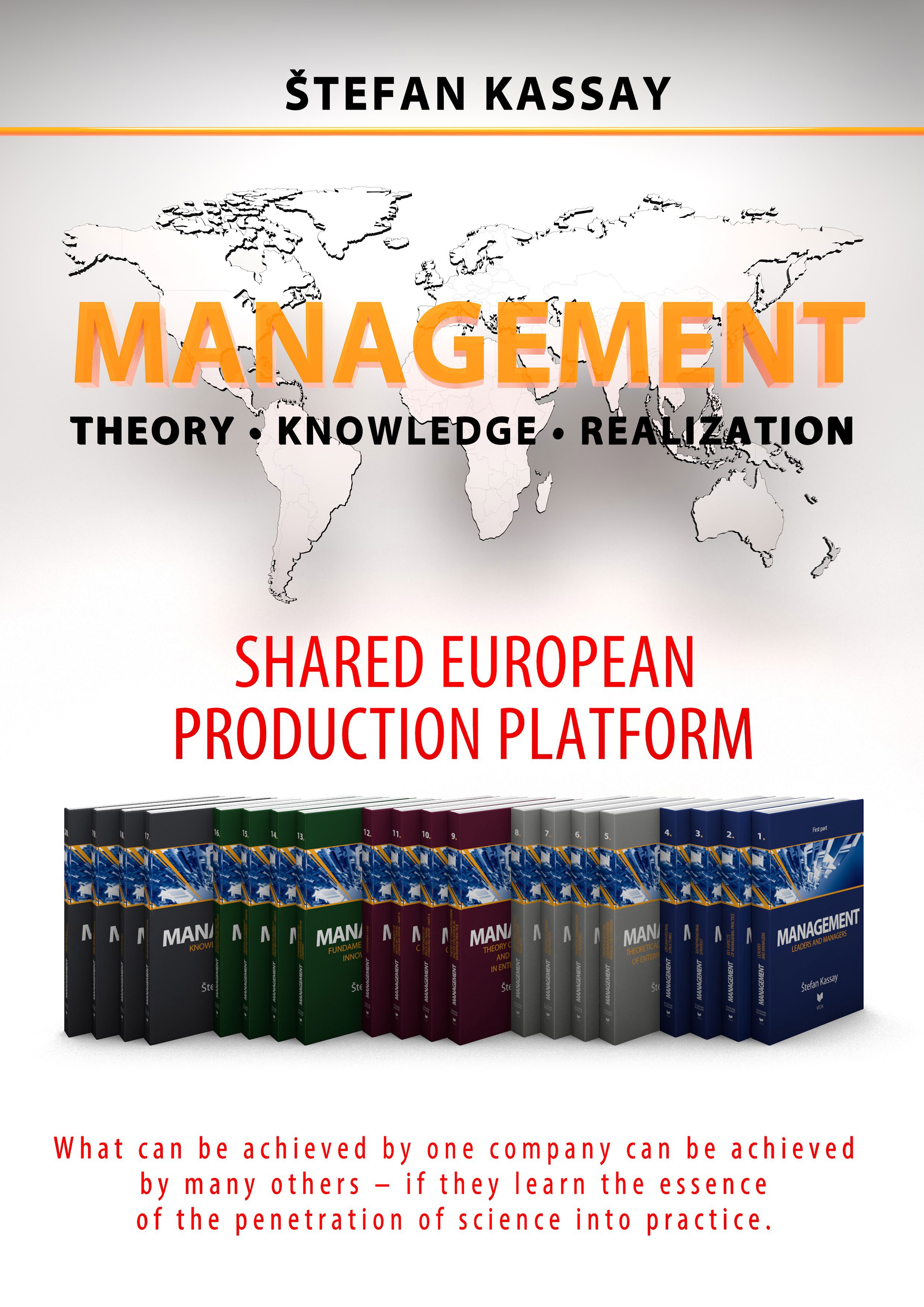Shared European production platform available online for students and entrepreneurs

How did the idea of an active cooperation of the online portal www.intercedu.com and the readers of economic literature arise? Professor Kassay commented: "The initial idea is based on experience from the Nordic countries, where the main thrust of new solutions is the integration of creative forces in different disciplines for solutions of fundamental importance. Working teams are chosen based on matrix structures, which actually means a temporary structure until the problem is solved and the creation of new structures according to the nature and type of new solutions. The main idea is the quality of life and knowledge, which does not end with the graduation from the relevant educational institutions, but enters a person's life at the entire stage of his active work. A concrete example is Finland, where knowledge and good relations between people are fixed as the highest values, mainly due to the influence of long-term education. The process of aggregation is characteristic for achieving effective results in a reasonable time. This experience is also applicable in our conditions, although we are currently facing rather a process of disaggregation and creation of small production units, which impoverishes the final solution with the variability of new ideas and innovative tendencies. There‘s room for improvement; to update teaching materials for students in the form of online study through a specialized web platform", explains Professor Štefan Kassay.

Professor Kassay's personal conviction about the need to create an active web portal is also based on his long-term 25 years of experience in the management of the corporation called I.D.C. Holding, a.s. and from the position as an economic diplomat, including the period of working abroad. He supplements his knowledge and areas of management with the scientifically substantiated experience that the integration of human forces leads to progress and possibility to achieve desired results much faster. The concentration of intellectual and human capital, knowledge and business economics in the global competition bring new impulses, and cooperation with capable, professionally educated partners leads to innovation and progress.
Shared European production platform
Each enterprise must pay an attention to manage the intellectual capital. However, it is true that as businesses grow in its size and complexity, they are increasingly dependent on knowledge of the market environment and competition used in strategic planning and decision-making. Big corporations need knowledge assets in order to "better adapt to the increasing uncertainties that accompany their growth". When a company operates longer time in a certain industry, it seems to be less threatened by the environment, and so companies often reduce environmental monitoring activities and are less concerned about the intellectual capital management. Currently, it is a necessity, which is verified based on achieved results and the growth of the competitiveness of companies that had enough courage to modify their own approaches to knowledge and their use, and at the same time invest enough energy into practical applications of the indicated theses in production practice.
Human capital is the ownership of an individuals and includes people within a business as well as customers and suppliers of that business. It contains facts, laws, and principles as well as less defined knowledge of specialization, teamwork, and communication skills. The measures should include both the quality and quantity of individual "resources" of knowledge as well as collective "resources" within work groups and collectives. An important aspect of human capital, as stated by several sources, is the understanding of human capital as "the value of a person".[1]

Knowledge has gradually became a critical strategic resource for business activities and further economic development of enterprises. This is an extremely important statement. Confirmed by the statement that companies and institutions that are aware of this fact can increasingly build their competitive advantage on corporate knowledge, based on knowledge capturing the best practices used in the company and the knowledge representing the latest progress in the field in which the company operates. Therefore, from a strategic point of view, intellectual capital can be understood as an important initial point for imitable and inimitable competitive advantages, as "the last sustainable competitive advantage".
This means strategically important knowledge assets that are an important source of a company's competitive advantage. They arise from the knowledge base, or the combination and interpretation of information and knowledge about the external environment and the company, which are further used primarily at the strategic level of business management. In other words, it is about processed information and knowledge [2] about the current and future state of the external environment and the position of the competition (comprehensive information about marketing, research and development, investment tactics, long-term business strategies of the competition, etc.) for the purpose of using them in the creation of good strategic plans and decisions.
Notes:
[1] The intellectual capital of a company or institution is used as a synonym for intangible assets or knowledge assets. The opinions of other authors appear in newer definitions or explanations of the content and accuracy of the expression.
[2] Knowledge is mostly understood as a realized knowledge, that is, it contains a practical element linked to the production in specific work procedures.

